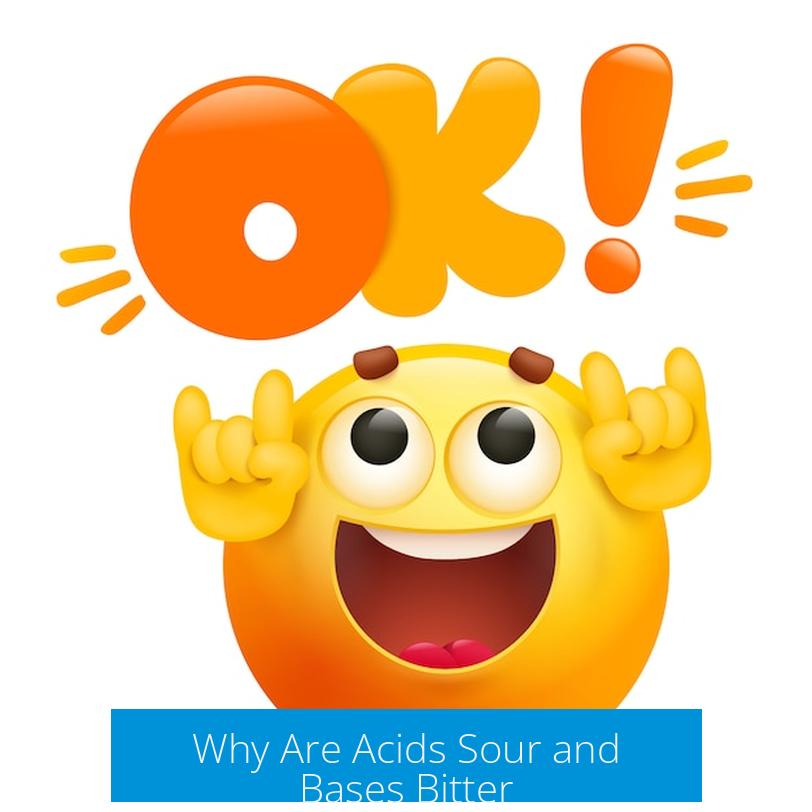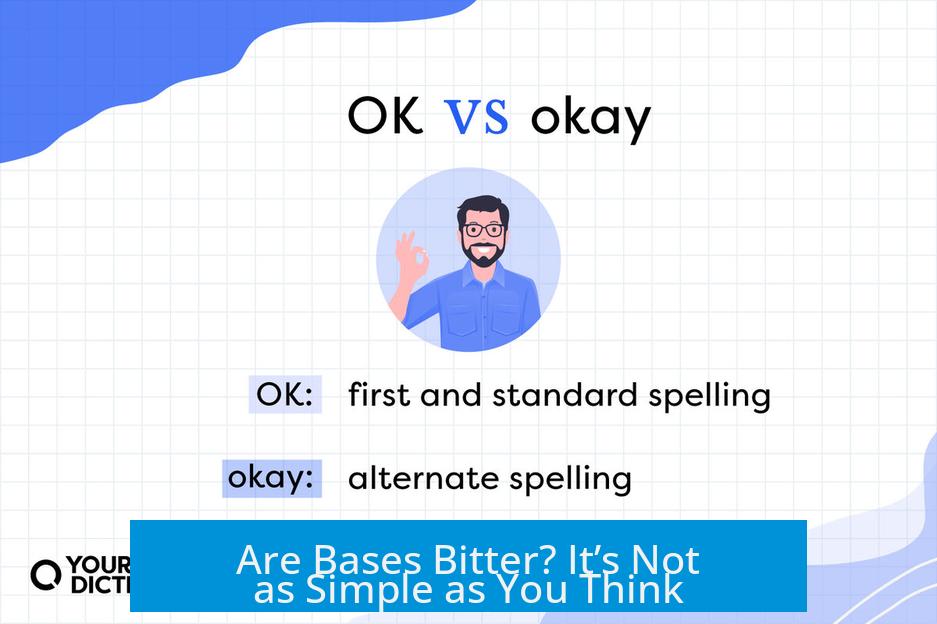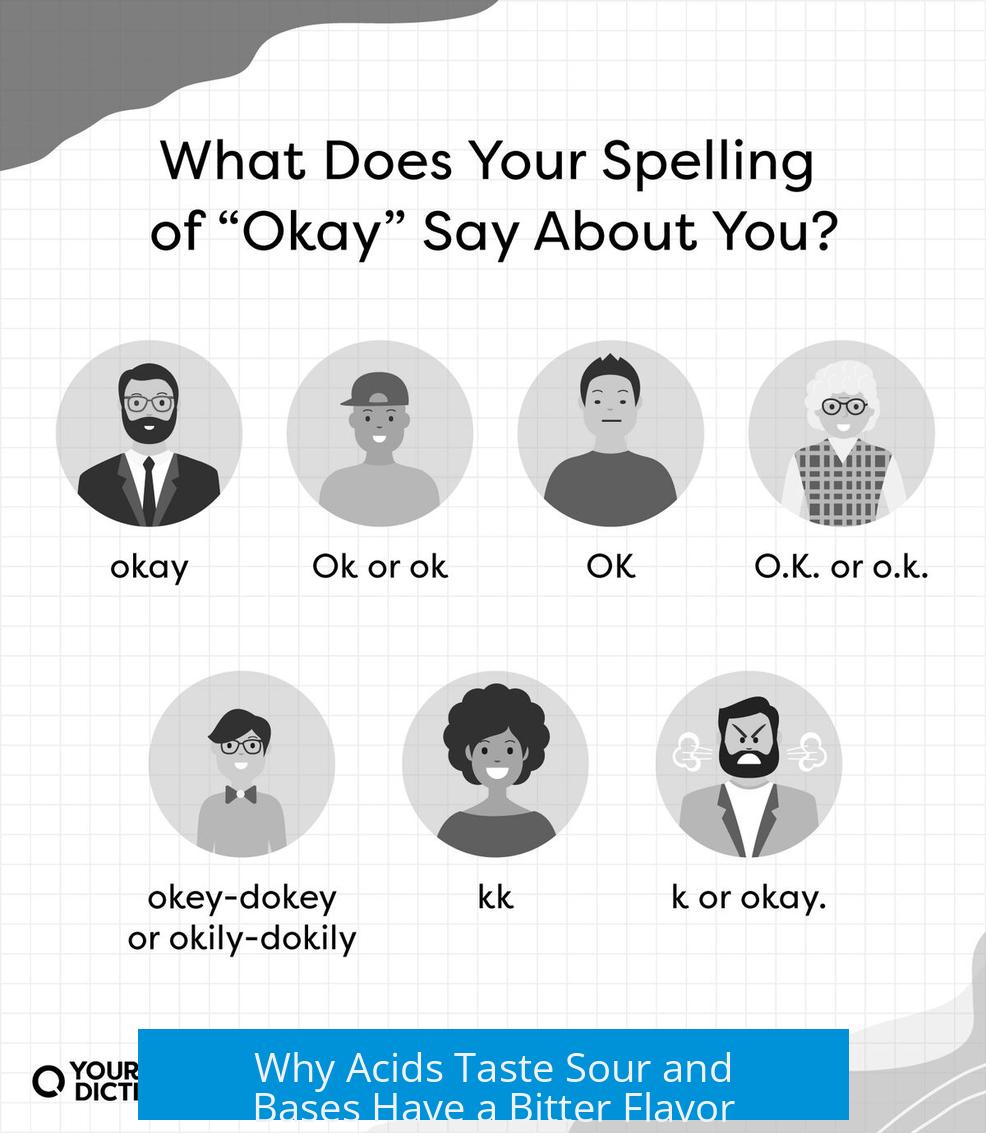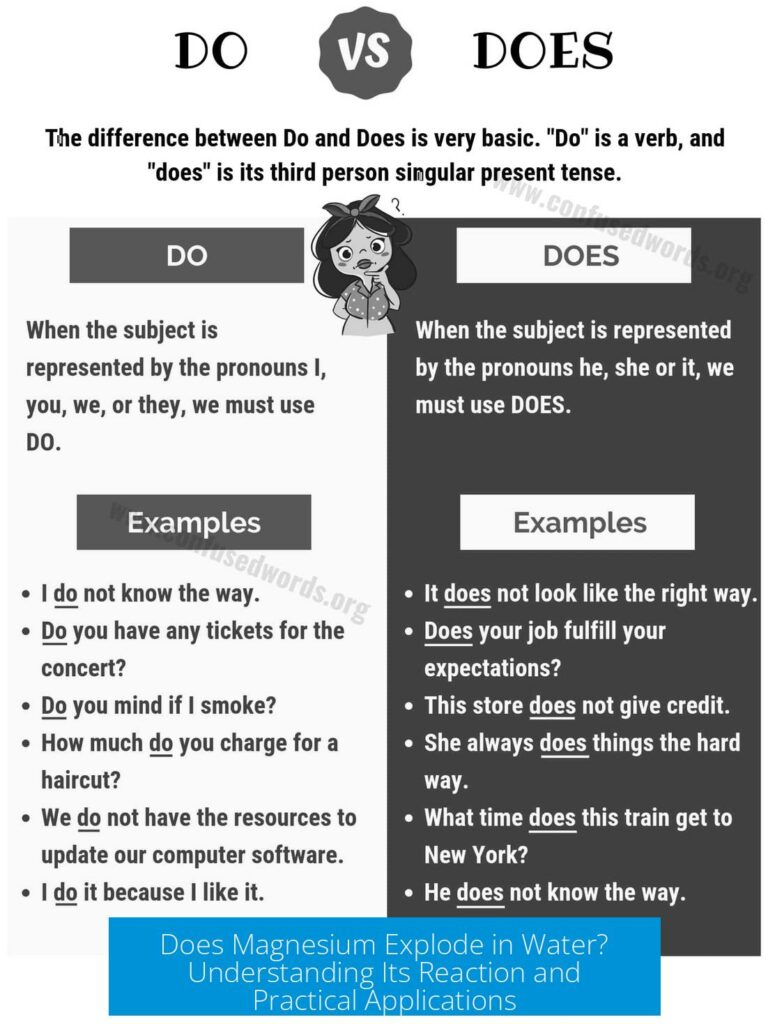Why Are Acids Sour and Bases Bitter?

Acids taste sour because our taste buds have specialized receptors that detect hydrogen ions (H+), whereas bases often taste bitter due to their interaction with complex bitter receptors sensitive to various chemical structures, particularly nitrogen-containing compounds. This physiological and biochemical differentiation helps explain why these substances provoke distinct taste sensations.
Understanding Sourness: The Role of Acids
Sourness arises directly from the presence of free hydrogen ions, H+, in acidic substances. When acids dissolve in saliva, they increase the local concentration of H+.
- Taste buds contain dedicated H+ receptors.
- These receptors detect the increased H+ concentration and send signals to the brain, which interprets this signal as a sour taste.
- Specifically, H3O+ (hydronium) ions activate sour taste receptor proteins on the tongue’s taste cells.
This mechanism has an evolutionary advantage. Many biological systems operate in slightly acidic environments. Thus, humans are accustomed to acids within their diet. Sour taste serves as a warning signal for potentially harmful, highly acidic substances. At low levels, sour tastes can signal beneficial nutrients, such as vitamin C, which is an acid. Excessive acidity causes strong sourness that prompts rejection through puckering or spitting.
Bitter Sensation and the Complexity of Bases
Bitter tastes do not arise from a single chemical property like sourness and H+ ions. Bitterness is more complex and involves multiple receptor types on taste buds. These receptors detect various molecules often associated with toxicity or spoilage.
- Bitter receptors are activated mainly by alkaloids and other nitrogen-containing compounds.
- Many of these nitrogenous compounds are basic, but not all bases taste bitter.
- There is no single “basic” receptor; instead bitter taste results from a variety of receptors responding to diverse molecular structures.
For example, bases such as sodium hydroxide (NaOH) may taste unusual or metallic but are not necessarily bitter. Bitter compounds often come from natural plant alkaloids, some bacteria metabolites, or spoiled food substances. Strong bases can chemically break down fats to release free fatty acids, which can taste bitter and smell unpleasant, reinforcing a natural deterrent from spoiled or toxic substances.
The Chemistry Behind Taste Perception
The taste system relies on receptors that bind specific chemical features of foods and chemicals. Tastes are sensory interpretations of these chemical signals.
- Sourness links directly to acidity and H+ concentration.
- Bitterness arises from a broad group of chemicals, many nitrogenous, that activate dedicated bitter receptors.
- Taste buds contain different receptor types for sweet, salty, sour, bitter, and umami tastes, each tuned to detect distinct chemical structures.
Notably, sweet and bitter receptors share structural similarities, as shown by compounds like naringin, a bitter molecule in grapefruit, which can be chemically modified to become intensely sweet. This supports the idea that subtle molecular changes cause dramatic taste distinctions.
Distinguishing Taste From Chemical Properties

It’s important to separate sensation from chemistry. Sour and bitter describe the sensory response, while acidic and basic identify chemical characteristics.
- Sourness is a taste perception triggered by detecting acidity (H+ ions).
- Bitterness signals potential toxicity via reaction with a diverse set of receptors.
- Basicity does not guarantee bitterness; many bases do not taste bitter.
This distinction highlights that flavor perception depends on receptor activity, not solely on a substance’s chemical pH classification.
Summary of Key Points
- Acids taste sour due to specific H+ ion receptors on the tongue.
- Bitter taste arises from multiple receptors responding mainly to nitrogenous, often toxic, compounds.
- Not all bases are bitter; bitterness is associated with molecular structures beyond basicity.
- Taste perception is a receptor-driven process linking chemical signals to sensory experience.
- Evolution favors sourness to detect useful nutrients and avoid harmful acidity.
Okay, Why Exactly Are Acids Sour, and Bases Bitter?
Acids taste sour because our tongues have special receptors built to detect hydrogen ions (H+) floating around, while bases often taste bitter because many trigger a variety of bitter receptors in our mouth—though the story is way more complicated than that. Let’s break this down, so the next time you pucker at a lemon or grimace at bitter medicine, you’ll know EXACTLY why.
First, the term “sour” isn’t just a fanciful way to describe a facial expression when licking a lime. It’s a distinct taste sensation triggered by a specific type of chemical: acids. Acids release H+ ions in solution. When you eat something acidic, those free hydrogen ions are what your taste buds latch onto.
The Magic of H+ Receptors and Why Sour is Sour
Your tongue is equipped with *dedicated receptors* that recognize these H+ ions. These receptors specifically respond to hydrogen ions or the hydrated form, H3O+, activating sour taste receptor proteins. When you chomp on a sour apple or sip vinegar, these receptors send urgent messages to your brain: “Hey! This is acidic. Pay attention.”
But why does our body bother? Well, this sour detection has an evolutionary benefit. Life thrives in a delicate pH balance, and many biological systems typically run slightly acidic. Detecting acidity helped early humans figure out if food was safe (like vitamin C-rich citrus) or potentially dangerous if it was *too* acidic.
The sour sensation basically acts like a taste alarm system. Mild acidity—even in food nutrients—is pleasant or refreshing. Think of sour lemonade on a hot day. But as acidity spikes, that puckering face you make? That’s your body warning you, “This might be harmful if you swallow too much.” So sour taste is both practical and evolutionary.
Are Bases Bitter? It’s Not as Simple as You Think

Now, bases don’t have such neat and tidy receptors like acids do. In fact, bases don’t *necessarily* taste bitter. The bitter flavor we often associate with bases is more circumstantial than absolute.
The truth? Bitter taste arises from a vast array of receptors—much more complex than those for sour or sweet. These receptors are designed to detect potentially toxic substances, many of which are bitter alkaloids containing nitrogen. Because nitrogen groups are often basic, and many alkaloids are basic, bitterness is loosely linked to “basic” substances.
But here’s a fun twist: Not all bases taste bitter, and not all bitter substances are bases. For example, some bitter compounds come from molecules totally unrelated to basic chemistry. Also, bitter receptors are structurally quite close to sweet receptors. A small tweak in a molecule can turn a super bitter compound like naringin (found in grapefruit) into something 300 times sweeter than sugar. Talk about molecular mood swings!
Why Do Bases Often Taste… Well, Unusual?
Strong bases—think sodium hydroxide (NaOH)—are more likely to taste strange than simply “bitter.” Ever wondered what licking a 9-volt battery tastes like? Roughly that’s the experience of dilute NaOH! Also, strong bases chemically react with fats, breaking them down to free fatty acids. These free fatty acids can taste bitter and often smell foul—like spoiled meat. This particular bitterness may have saved early humans from eating rotting, dangerous food.
The Bigger Picture: Taste Versus Chemistry
It’s important to remember sour and bitter are *tastes*—sensory experiences—while acidic and basic describe chemical properties. Your brain uses the chemical signals your tongue detects to categorize a taste into these familiar sensations. Acids release H+, which activate sour receptors; bitter receptors respond to a dizzying variety of nitrogenous and other complex molecules often associated with danger.
So why even bother detecting these? Because taste guides survival. Sweet signals energy-rich food, salty indicates vital minerals, umami signals protein, and sour and bitter help avoid harm. For example, spit out something overwhelmingly sour before it damages your insides. Avoid bitter things likely toxic.
Practical Tips and Fun Facts
- Food science in action: When cooking, you might tweak acidity or bitterness to enhance flavor. Adding lemon juice brightens dishes; a dash of bitter greens balances sweetness.
- Ever tried weird science? Researchers speculate rewiring your taste neurons could flip these sensations. Would you want to taste chocolate as bitter? Maybe not.
- Curious about taste receptors? Check out communities like r/FoodScience for fascinating debates and discoveries.
- Science reference: The study here dives deeper into taste receptors and food chemistry if you want the nerd level.
Wrapping Up: Why This Matters
Next time you squint after sipping vinegar or grimace at bitter medicine, know it’s not random. Your taste buds and brain are hard at work, protecting you and guiding your food choices. Acids hit dedicated sour receptors signaling those H+ ions. Bases might taste bitter, but that bitterness is a complex warning system for dangerous compounds, not a straightforward chemical reaction.
Understanding these nuances enriches how we experience food—from cooking and tasting to choosing what’s safe and nourishing. Plus, it’s pretty cool to know your tongue is a finely tuned chemical detector, not just a flavor sponge!
So, the next time you ask yourself, “Why are acids sour, and bases bitter?” remember: it’s all about chemistry, biology, and a little evolutionary survival magic happening right on your tongue.
Why do acids taste sour to our tongue?
Our taste buds have special receptors that detect H⁺ ions in acids. When these receptors sense increased H⁺ concentrations, they send signals to the brain. This response is interpreted as sour taste.
Are all bases bitter in taste?
No, not all bases taste bitter. Bitter taste comes from many receptors that respond mainly to nitrogen-containing compounds. Some bases taste bitter, but many do not.
Why is bitter taste often linked to toxic or harmful substances?
Bitter receptors detect compounds that can be harmful or poisonous. This helps avoid dangerous foods. Many bitter substances are not nutrients but warning signals to the body.
Do bases directly cause bitterness, or is it something else?
Bases themselves don’t necessarily taste bitter. Strong bases can break down fats into free fatty acids, which then taste bitter and smell bad. So bitterness comes indirectly.
How does the body distinguish between sour and bitter tastes chemically?
Sour taste comes from detecting acidic H⁺ ions, while bitter taste results from complex receptors sensing various molecules, especially nitrogen compounds. Each taste uses different receptors tailored for specific chemicals.





Leave a Comment